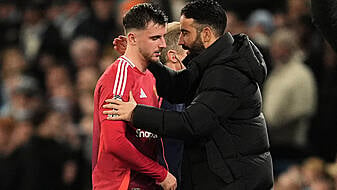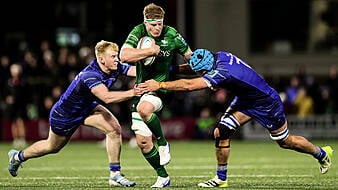The Ladies Gaelic Football Association has been ordered to pay €5,000 compensation to a young girl with cerebral palsy who was banned from playing competitive matches with the under-12 team because she was too old.
The Workplace Relations Commission ruled the LGFA had discriminated against the girl on grounds of disability contrary to the Equal Status Act.
The WRC ruled that the LGFA had not afforded the girl reasonable accommodation for her disability.
It also directed the LGFA to introduce an age dispensation policy for children with a disability in underage levels up to and including under-12s within six months.
The WRC said such a policy should be fully compliant with the Equal Status Acts 2000-2015 and be incorporated into the LGFA’s Code of Ethics and Good Practice for Young Players.
The WRC ruled that the identity of the girl and her club should be anonymised because of the special circumstances of a case involving a minor with a disability.
The girl’s father claimed his daughter had not been provided with reasonable accommodation for her disability when she was prohibited from playing competitively at under-12 level when she was aged 13.
He also complained that she had been discriminated against on age grounds.
The LGFA denied that it had discriminated against the girl in any manner.
The girl had been permitted to play with a younger age group – one to two years behind her chronological age – because of reduced speed associated with her disability since she was seven years old.
The WRC heard that the girl was informed on April 8th, 2022, which was the under-12 team's first match of the season, that she would not be allowed to play as the opposing team could object to an over-age player.
However, the girl was allowed to play that day after the other team clarified that it had no objection.
Her parents subsequently wrote to the club about the effect that the incident had on the daughter and sought a response as a matter of urgency.
They were informed by the club’s chairperson three days later that the girl could not compete at under-12 level until the club heard back from its county board.
The county board restated the club’s position on April 19th, 2022, about her being banned from playing competitive games but said she could continue to train with the under-12 team.
The WRC heard that the girl remained on the sideline for all competitive games for the remainder of the 2022 season.
In February 2023, the girl’s parents rejected a proposal by the club that their daughter could take up a supportive role with the under-14 team for the 2023 season.
Her father argued the LGFA’s blanket prohibition on moving down age categories in competitive events constituted discrimination where his daughter’s age and disability resulted in her exclusion.
The man gave evidence that his daughter participated in para-athletic events including the UK track and field championships at Track 35 level – the most restricted class.
He described how his daughter was devastated by not being allowed to play competitive matches with her under-12 team.
He claimed her humiliation was aggravated by the fact that her teammates were also mostly her schoolmates.
The man disputed the LGFA’s claim that metal supports she wore might pose a health and safety hazard as he showed she wore hard plastic boots.
He informed the WRC that the Football Association in England operated an age dispensation policy on social and disability grounds which had been rejected by the LGFA.
Under cross-examination, he accepted that his daughter fell over a number of times when playing a match.
He also agreed that her capacity to compete would diminish as competitiveness increased with older age groups.
The girl’s mother claims a medical assessment of her daughter should have been used by the LGFA as her club would not encounter many children with a physical disability.
A senior executive manager with the LGFA confirmed that it has no official age dispensation policy, although it does allow certain practices whereby an underage player with Down Syndrome is accommodated in a different age group.
The club’s coach gave evidence that she was “always looking out” for the girl but was always worried that she would be knocked over because she was weak on her feet.
The club’s chairman stressed that the girl was never prevented from playing matches because of her disability but purely because she was overage.
He accepted that he had mentioned in a WhatsApp message to the girl’s father that the risk would have to be assessed by the club’s insurers but accepted no risk assessment was ever carried out or sought.
Counsel for the LGFA, Una Clifford BL, claimed that reasonable accommodations had been made for the girl by facilitating her playing with younger age groups because of her disability since she joined her club.
Ms Clifford also argued that the LGFA’s maintenance of necessary rules around age levels and eligibility was essential.
In his ruling, the WRC adjudication officer, Thomas O’Driscoll, said he had no doubt that the girl’s disability was the key factor in its decision so that a prima facie case of discrimination had been established.
Mr O’Driscoll said he also had no doubt that the LGFA has an overall caring and inclusive mindset and has a positive influence on communities which is “immeasurable.”
He noted that it was run by conscientious people “from grassroots level to the top.”
However, he said that the LGFA had “come up short” in the manner in which it withdrew reasonable accommodation from the girl when she had previously been allowed play with a younger age group due to her restricted movement and smaller size.
Mr O’Driscoll said it had been withdrawn on a misapprehension, without any medical or insurance advice, about the danger she could pose to either herself or other players.
He pointed out one such misapprehension was in relation to her needing to wear metal leg braces which had been debunked.
The WRC found that the LGFA had effectively implemented a discretionary, unofficial policy regarding age allowances for the girl.
It said the association had unreasonably revoked accommodation from the girl without informed consideration of her disability and small stature and did not “go the extra mile.”
“The playing of games at under 12 level and below should never lead to negative psychological effects for children with a physical disability,” said Mr O’Driscoll.
However, he accepted that “naivety was at play rather than any malicious intent.”
The girl’s father withdrew an associated claim against his daughter’s GAA club as it is a constituent part of the LGFA.
The WRC also dismissed claims by the LGFA that the case should have been dismissed on a number of preliminary legal issues regarding deadlines for filing complaints and age discrimination cases by children.







